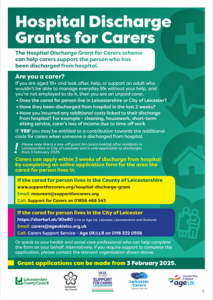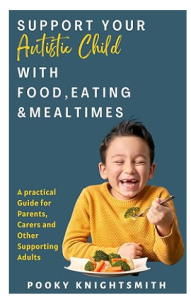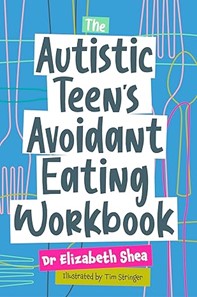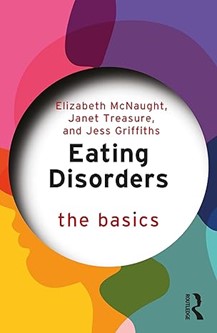General health related resources for autistic people
___________________________________________________________________________________________________________________________________________________________________________________
Click the boxes below to find out more about health-related resources and support services for autistic people
To find information and advice on health-related topics, for autistic people and their families, friends and carers, please click here
____________________________________________________________________________________________________________________________________________________________________
The listed services and links to websites maintained by other organisations are included on here to assist you and are provided in good faith. Some may incur costs. Their inclusion does not imply that the Leicestershire Partnership Trust endorses or supports them, nor does the absence of a service imply that we do not support them
____________________________________________________________________________________________________________________________________________________________________
Autism - NHS
Joy – social prescribing – a directory of activities and support services to improve health and wellbeing
Joy is a free health and wellbeing support website for people living and working in Leicester, Leicestershire and Rutland (LLR)
Joy helps you find activities, groups and support offers near you
From walking groups to debt advice – it’s about what matters to you
You can tailor searches to meet your individual needs and preferences
For example, you can choose your location and use key words such as ‘autism’ or ‘autistic’
Find out more by visiting the website – click here
ToothPASTE free online resource – Supporting autistic children's oral health
ToothPASTE is a free online resource created with parents and professionals to support autistic children’s oral health.
It is also helpful for many children with additional needs.
The resource includes small, practical steps to help with:
- Toothbrushing
- Reducing sugary foods and drinks
- Attending dental appointments
The materials are autism‑informed, non‑judgemental, and simple to use.
You can also learn more about the research behind ToothPASTE.
For more information, please contact: A.Chauhan@leeds.ac.uk
The hospital discharge grant carers scheme
The Hospital Discharge Grant Carers scheme can help unpaid carers support any person who has been discharged from hospital – whether or not they are autistic
To qualify, the cared for person must live in Leicestershire or Leicester city and have been discharged from hospital in the last 2 weeks. The unpaid carer must have incurred costs linked to the discharge from hospital.
These costs can include cleaning, housework, short-term sitting service, purchase of equipment, or the carer’s loss of income due to time off work.
Carers can apply for this one-off grant by completing an online application form. Applications must be submitted within two weeks of the person being discharged from hospital.
For more information, including the online application forms, click the following links.
Learning from lives and deaths (LeDeR)
LeDeR stands for Learning from Lives and Deaths of people with a learning disability or autism
It is an NHS programme in England that reviews the care and support autistic adults and adults with learning disabilities received if they sadly die. The aim is to review what worked well and what could be improved in the care they received.
By examining these cases, LeDeR helps services learn lessons –
– to prevent avoidable problems, improve future health and social care
– and make support safer and fairer for autistic people and those with learning disabilities
To find out more and / or to report the death of an autistic person or a person with learning disabilities, click the following link:
Report the death of someone with a learning disability or an autistic person
To see the latest reports from the Leicester, Leicestershire and Rutland LeDeR service, click the following links:
Pressure ulcers
Pressure ulcers can be of greater risk to people with a learning disability (which often co-occurs with being autistic) as they can have reduced movement, physical activity and sometimes lack the skills to understand and express that they may be feeling pain. LPT has created a leaflet about pressure ulcers to help individuals, family and carers look out for warning signs and what can help.
More Than Words - a resource to educate health care professionals on how to adapt their communication to meet the needs of autistic people
This resource is for health care professionals.
However if you are an autistic person who finds your communication needs are not being well met by any health care professional or service, you can consider sharing this document with them
___________________________________________________________________________________________________________________________________________________________________________________
Eating related resources for autistic people
Click the boxes below to find out more about eating and drinking related resources and support services for autistic people
___________________________________________________________________________________________________________________________________________________________________________________
To find information and advice on eating and drinking for autistic people and their families, friends and carers, please click the following links:
Autism and eating disorders | Autism Space | Leicestershire Partnership NHS Trust
___________________________________________________________________________________________________________________________________________________________________________________
Typical autistic eating differences
Autism Space information about typical autistic eating related challenges and habits
National Autistic Society – Top tips – supporting an autistic child with eating
Fussy eating in children – a series of webinars by NHS specialist paediatric dietitians to help guide parents when feeding children who exhibit fussy or restricted eating habits. These webinars have been submitted for BDA endorsement.
Advice for parents and carers for when their child refuses food
Book
How to Support Your Autistic Child with Food, Eating and Mealtimes: A Practical Guide for Parents, Carers and Other Supporting Adults – by Pooky Knightsmith
Disordered eating and eating disorders in relation to autism
Autism Space information in relation to disordered eating and eating disorders
The Peace Pathway is an organisation supporting autistic people with eating disorders. All the information they provide has been developed and learned through clinical experience. Their research suggests that around 35% of people experiencing an eating disorder may be autistic or present with high levels of autistic traits. They have developed the pathway to help support autistic people suffering with an eating disorder, their loved ones and their clinicians.
National Autistic Society – Information about autism and eating disorders
Autism Oxford – An autistic adult with disordered eating shares their lived experience – video
The Eating Disorders and Autism Collaborative is a UK-wide network of autism and eating disorders researchers. They aim to improve understanding of eating disorders in autistic people – and to help develop better treatments for them. They work collaboratively with autistic people with lived experience of eating disorders and have produced best practice guidelines for conducting research in this field. Check their website for details of their projects, including opportunities to get involved.
Local support for eating disorders
Here in Leicester, Leicestershire and Rutland there are several NHS services and healthcare pathways for people with eating disorders.
Your doctor will know if any of these are appropriate and can make any necessary referrals.
Click the following links for information about the Leicestershire and Rutland Adult Eating Disorders Service:
For adults
Information about the Adult Eating Disorders Service – Leicestershire Partnership NHS Trust
Leicestershire Adult Eating Disorder Service – home page
For children and young people
Nationally available support and resources for eating related issues
Improving your relationship with food and with your body
The Body Positive is a website containing a wealth of information, resources and advice on how to improve your relationship with food and your body.
Topics include:
- Selective eating and ARFID
- Body image and healthy eating
- Disordered eating
There are sections for young people, parents and carers and professionals – and there are stories from real people
The resources section links through to NHS endorsed resources, including blogs, top tips, events, workshops, webinars and videos
To find out more, click the following link:
https://bebodypositive.org.uk/
ARFID
Health for Teens information about ARFID
ARFID awareness UK charity home page – Raising awareness about ARFID, supporting individuals, families, carers and medical professionals, providing information, news, downloadable resources and online (Facebook) communities.
WHAT IS ARFID? – ARFID awareness’s explanation
ARFID – Avoidant/Restrictive Food Intake Disorder – information from BEAT, UK eating disorders charity
The Connection Between ARFID and Autism – information from US organisation FEAST
Autism Oxford – ARFID and autism – a video
Book
The Autistic Teen’s Avoidant Eating Workbook – by Shea and Stringer
This book is for neurodivergent teenagers looking to change their relationship with food – perhaps to expand their repertoire of ‘safe foods’, to get better at recognising and responding to hunger, or to reduce food related anxieties. This guide will help with this and many more aspects of eating related challenges. It includes top tips, a progress tracker and worksheets – and aims to support young autistic people to put themselves in charge of improving their food related habits, health and wellbeing.
Pica
Information about pica from BEAT eating disorders charity
Information about pica from the National Autistic Society
Other eating disorders
BEAT – Home page – This UK eating disorder charity providing a range ot support, information and advice. They have a phone helpline plus support via email, webchat and social media accounts. Calls to their helpline are free from landlines and mobile phones within the UK and do not appear on itemised bills.
BEAT – Tips campaign – signs of a possible eating disorder
BEAT – Going to the doctor – how to prepare for a doctor’s appointment about a possible eating disorder – and what you should expect
Book
Eating Disorders – the Basics. By Mc Naught, Treasure and Griffiths.
This book is useful for people with eating disorders, their families, friends and also for health care professionals and students. It contains information about: risk factors that can cause and sustain eating disorders; assessment, diagnosis, treatment and support for people with eating disorders. It covers a range of relevant topics and contains real-life accounts – including from an autistic person.
___________________________________________________________________________________________________________________________________________________________________________________
Advocacy Services
Click the boxes below to find out more about advocacy resources and support services for autistic people
___________________________________________________________________________________________________________________________________________________________________________________
POhWER – independent support for advocacy in relation to: NHS complaints, Mental Health Act, Mental Capacity Act, Deprivation of Liberty safeguards
POhWER is an independent advocacy support for people who live in Leicester City, Leicestershire and Rutland. Services include:
- NHS Complaints Advocacy
- Independent Mental Health Advocacy
- Independent Mental Capacity Advocacy
- Deprivation of Liberty Safeguards
All services are free, independent from other services – and confidential.
NHS Complaints Advocacy can support people who need help to make a complaint about the care and treatment they have received from the NHS
People can refer themselves or be referred by a professional, carer, family member, or friend
People can make a complaint on behalf of someone else – if they have their consent to do so, are their parent or guardian, or if the person is deceased.
Independent Mental Health Advocacy can support people who are:
- Detained under the Mental Health Act (normally in hospital)
- Subject to Guardianship
- Subject to a Community Treatment Order (CTO)
- A conditionally discharged restricted patient
- Under 18 and being considered for electro-convulsive therapy or any other treatment to which section 58A applies.
- An ‘informal’ (voluntary) patient who will be placed on a section imminently
People can refer themselves or be referred by a professional, carer, family member, or friend.
Independent Mental Capacity Advocacy can support adults who don’t have family or friends who are able to speak for them and a decision needs to be made about:
- Serious medical treatment – when the NHS wants to give new treatment, stop treatment that is already being given or when they do not want to start treatment
- A change of accommodation – when the NHS or local council wants to move a person to hospital for more than 28 days or to other accommodation for more than 8 weeks.
- An IMCA may also be able to support with:
- Safeguarding Adults from Abuse – when the NHS or local council receives a report of abuse and either the person reported to have been abused or reported to be the abuser lacks capacity to understand the plans being made to prevent the abuse. This is the only type of issue where the person can have family or friends to support them and still have IMCA support.
- Care Reviews – when the NHS or local council has arranged accommodation or wants to review arrangements for a person who lacks capacity.
Referrals must be made by the local council or the NHS.
Deprivation of Liberty Safeguards can support people who have been deprived of their liberty but due to an illness, an injury or a disability which has affected the way their mind works they are not able to agree that they will not be allowed to do certain things. Referrals are made through the local council.
All referral forms and leaflets can be found on the POhWER website, by clicking the following links:
https://www.pohwer.net/leicester-city
https://www.pohwer.net/leicestershire
https://www.pohwer.net/rutland
For help with a referral, call the Help Hub on 0300 456 2370 or email pohwer@pohwer.net
Mental Health Care and Support Leicester | Lamp Advocacy
Lamp provides free advocacy for people with mental health needs, including autistic individuals, especially where housing and wellbeing are linked.
- Support includes: Help with housing rights, challenging decisions, and accessing appropriate accommodation.
Contact:
0116 255 6286
___________________________________________________________________________________________________________________________________________________________________________________
Parenting Support
Click the boxes below to find out more about parenting resources and support services for autistic people
___________________________________________________________________________________________________________________________________________________________________________________
Leicestershire | Togetherness
There are FREE parenting courses available through the NHS in Leicester, Leicestershire and Rutland (LLR) for any parent with an LLR postcode.
You will need to create an account to access the courses, by logging on to this webpage:
Free wellbeing online courses in Leicestershire – inourplace
https://togetherness.co.uk/mul/leicestershire/
You need to add the access code CURVE
The parenting courses cover a range of areas – and each have numerous modules which can be accessed and worked through at your own pace. These include:
· Understanding your child with additional needs
· Understanding your child’s feelings
· Understanding your child’s mental health and wellbeing
___________________________________________________________________________________________________________________________________________________________________________________
The Leicestershire Partnership Trust cannot be held responsible for any damage or loss caused by any inaccuracy on linked sites or pages. The Leicestershire Partnership Trust cannot control and is not responsible for the privacy practices of any site to which a link is provided. It is recommended that you read the privacy policy of any site you visit, particularly if you are asked to give personal data.





